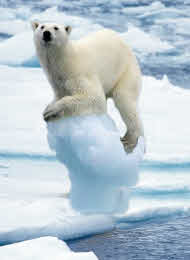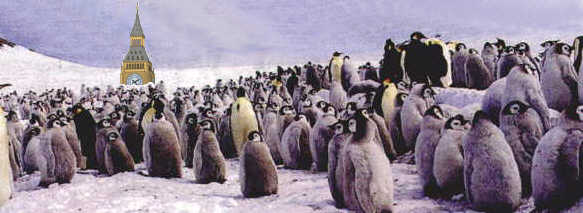 July 2012
Previous studies have measured the width of the rings. The latest study gives slightly higher values for the estimated temperatures during the Roman occupation of Britain and the mediaeval warming period -- both of which Global Warming Swindlers have sought to air-brush from the record. Dr. Wilson believes that an improved knowledge of how the temperature varied in the past will "help us understand the current warming". [This is the global warming trend which stopped in 1998. Ed.] Little is known of what happened during the Roman warming period but there was a reduction of volcanic ash in the atmosphere (which blocks the Sun's rays) during the Mediaeval warming period. This explanation does not apply today.
The computer models currently in use involve major assumptions which cannot be justified. They predict huge and alarming rises in both global temperatures and global sea levels over the next century -- but they DO NOT predict the current plateau in global temperatures or explain why sea levels have not changed over the last 30 years. All of which shows that the models are flawed -- probably because the people who wrote them lack a sufficient grasp of how the Earth's climate operates, and the forces involved, to be able to describe it on a computer. And we could be as easily heading for a new Ice Age as global meltdown.
|
 |  |
 Robert Wilson, a paleoclimatologist at the University of St. Andrews, is the co-author of the study which has measured the density of tree rings in northern Scandinavia as a way of estimating annual temperatures back to 138 BC.
Robert Wilson, a paleoclimatologist at the University of St. Andrews, is the co-author of the study which has measured the density of tree rings in northern Scandinavia as a way of estimating annual temperatures back to 138 BC.
 It is Dr. Wilson's view that "the current warming cannot be modelled based on natural forces alone". Which hardly justifies his conclusions that man-made greenhouse gas emissions "are the predominant forces in the late 20th century and early 21st century period".
It is Dr. Wilson's view that "the current warming cannot be modelled based on natural forces alone". Which hardly justifies his conclusions that man-made greenhouse gas emissions "are the predominant forces in the late 20th century and early 21st century period".


